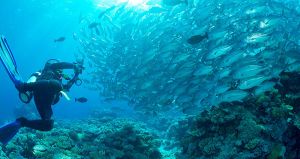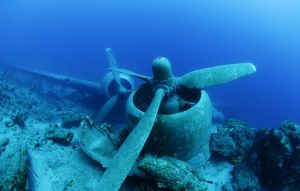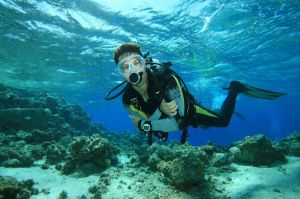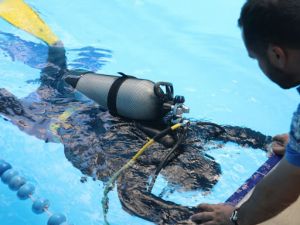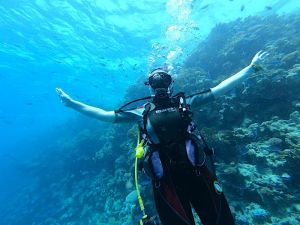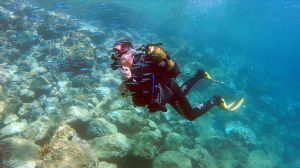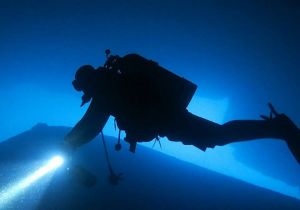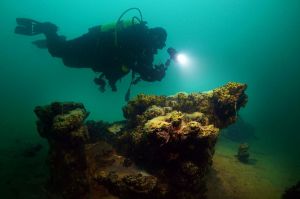Dive into the city .
Diving offers the opportunity to explore the magnificent oceans, lakes, and underwater ecosystems that nature has to offer. Diving requires both physical and mental discipline; it is important to pay attention to elements such as water pressure, breathing techniques, and the use of diving equipment.
Diving is a water sport and activity that involves diving and spending time underwater with the aim of moving freely underwater. Divers usually use special diving equipment and dive for different purposes, such as exploring shallow or deep waters, observing underwater life, or searching for underwater objects. Diving can be done as a recreational activity, as well as for professional purposes such as scientific research, underwater photography, marine biology studies, and underwater debris exploration. Underwater diving is an activity that requires proper training and experience and involves the correct use of diving equipment. It is also important to pay attention to underwater pressure and environmental factors when diving.
- The diving suit: Diving suits are used to protect the bodies of divers from cold and injuries. They are usually made of a material called neoprene and fit tightly on the body.
- The diving mask: The diving mask covers the diver's face and absorbs the eyes and nose. This helps the diver to have a clear view while preventing water from entering the eyes and nose.
- Diving glasses: Diving goggles are eye protection equipment used for surface swimming or underwater diving. The glasses cover both eyes separately and usually have a simpler structure.
- The diving tube (bottle) : The diving tube is used for the diver to breathe. It contains compressed air or a mixture. Diving tubes are usually made of steel or aluminum.
- The dive beacon . : The diving lantern is used in dark or low-light areas underwater. These lanterns are designed to illuminate underwater life or objects.
- The diving palette: The diving paddle is used to make it easier for the diver to swim and move underwater.
- The diving computer A dive computer helps the diver keep track of depth, duration, air consumption, and safety during the dive. These devices are important to increase the safety of diving.
- The diving knife. A diving knife helps the diver save himself or others in an emergency. It is usually used for jobs such as cutting rope, cleaning underwater plants, or fishing.
- tube diving : Tube diving is when a diver dives underwater using compressed air or a mixture in a tube or bottle. This type of diving can occur in different subspecies, such as surface-dependent diving or free diving.
- This is Kamikaze Diving: Kamikaze diving is a term that takes its name from Japanese Kamikaze pilots. However, in underwater diving, this term refers to the diver's uncontrolled descent into the depths. This is a dangerous behavior and is not usually taught in diving training.
- Free diving: Free diving or apnea diving is done to understand how deep the diver will go underwater without breathing or how long he will dive.
- The Diving Shuttle: A diving beacon is used to mark the surfacing of a diver or to protect the area where the diver is diving from other water sports activities. Shamans are usually colorful and floating objects.
- Dive weight: Diving weight is used to make it easier to swim and dive underwater when the diver is heavier underwater than at the surface. Adding weight underwater allows the diver to move more comfortably underwater and maintain balance.
- The diving belt : The diving belt helps to carry and use diving weights in a balanced way. It is used to ensure an even distribution of the weights.
